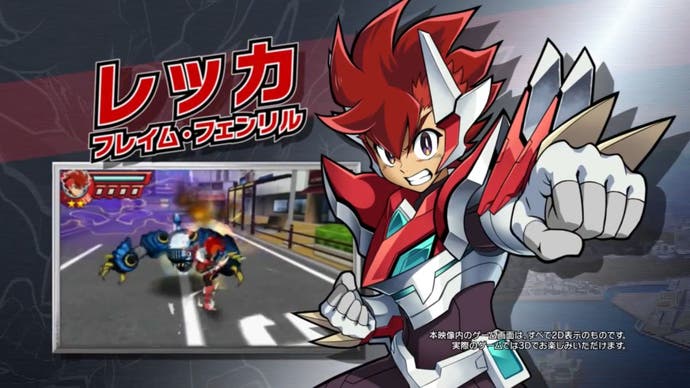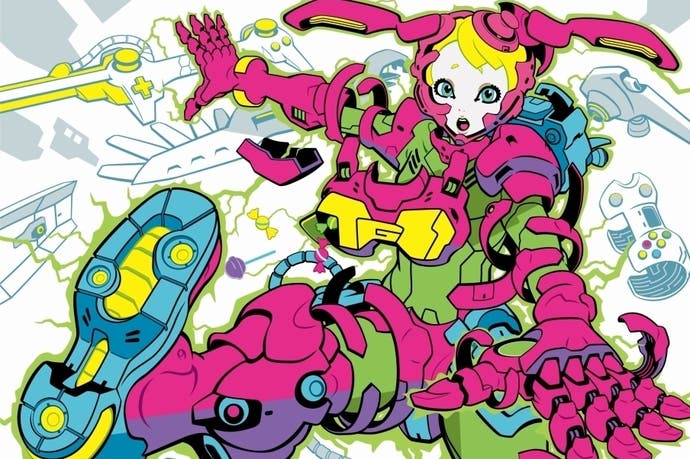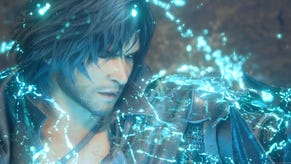Myths and legends: a postcard from Tokyo Game Show 2013
Traditional Japanese gaming culture is dying, but elsewhere it's stronger than ever.
When it came to hosting legends of the industry, this year's Tokyo Game Show couldn't really have been much better. Hideo Kojima's stage shows on Sony's booth, full of camp theatrics that strike a little discord with the more sombre tone the series is presented with in the west, saw Metal Gear Solid 5 come into brilliant focus, while elsewhere Yasumi Matsuno stepped out of the wilderness to announce his new project, Unsung Story: Tale of the Guardians.
Before the show itself, the opportunity to meet Polyphony's Kazunori Yamauchi was a rare treat that made some things about the Gran Turismo series that little bit clearer: the six wardrobe-sized wine chillers in Yamauhci's office, all fully stocked, go some way to explain how famously ponderous the series and studio can be, and why mere months from its release Gran Turismo 6 still looked far from finished (of the four demo pods on display at Polyphony's office three were still playing Gran Turismo 5, while the one playing the newer game suffered from a frame-rate that lurched to uncomfortable places).
But while some legends endure, others are quietly dying away. Treasure, the cult studio behind Radiant Silvergun and Gunstar Heroes, made an overdue appearance after two years of silence with Gaist Crusher, a 3DS action game that takes the toy collection of Skylanders and gives it a Japanese twist. It seems unlikely that Gaist Crusher will ever make it outside of Japan. And even if it does, it'll likely never find much appeal to an audience of Treasure fans who must by now have come to terms with the fact that, with key people such as Hiroshi Iuchi and Tetsuhiko Kikuchi having moved elsewhere, the studio's days as a creator of daring and original games are most likely behind it.
The enduring myth that tells of the death of Japanese gaming is no truer this year than it has been in the past, but there are most definitely changes. Most noticeably, Japanese gaming culture as we once understood it is slowly dimming away. In arcades, candy cabinets make way for UFO catchers, while the 50 yen arcades that were noisy libraries of past greats are disappearing altogether. One of the most famous examples that was situated just minutes away from Shibuya's station has been shuttered for good, and it's become increasingly hard to find something to play in an arcade that isn't one of Namco's Dragon Ball or Mobile Suit Gundam games.
For a global gaming event, the Tokyo Game Show itself often felt a million miles from the seismic event in the video game industry earlier in the week - just as powerful as the earthquake that stirred us from our sleep in the early hours of Friday morning. Grand Theft Auto 5 pulled in some $800 million on its first day of sales on Tuesday, while in Tokyo, where the game is yet to be released by its local distributor Capcom, all it could muster was a small queue that arched politely around the Osaka outfit's booth.
Capcom's had a recent success of its own, of course, with Monster Hunter 4 selling some 1.7 million units in the two days after its launch last Saturday, but it's a success that would be hard to replicate beyond Japan. And despite the huge posters that stand as tall as a Lagiacrus around the Hachiko crossing, it's a success that seems a little muted: Street Passes don't seem to flow as freely as they did a couple of years ago, and it's hard not to notice that there are fewer 3DS units in the wild.
That subdued note is hushed even further around the Makuhari Messe that hosts the Tokyo Game Show. The salad days of old have long wilted, but even so the empty echo in the far reaches of the show's grand halls comes as a sad surprise, with vast swathes of space in between exhibitors and walkways that are achingly wide. With the customary crowd-puller Monster Hunter 4 already unleashed to the public, it's Sega's Edo-flavoured period piece Yakuza Ishin that's commanding the biggest crowds, and it's a game that's unlikely to ever make it out of Japan.

Japan's game industry is becoming increasingly isolated, a trend that started at the dawn of this generation when it lost some of its foothold on the global market, and one that has accelerated ever since. It's becoming ever harder to find games of interest to a western audience, let alone ones that could find any reasonable success: Kojima's Metal Gear Solid is one of the few to boast global appeal, while the medieval European aesthetic of Dark Souls ensures it's an anomaly with a small presence on Namco's stand.
And it's Namco's shift in emphasis that gives you a clearer picture of where Japan's gaming industry is at right now, with its biggest franchises being pushed towards free-to-play. Ridge Racer, Ace Combat, Tekken and Soul Calibur have all been pushed down that route, and given the success of Namco's free-to-play Gundam games, it's hard to fault the decision.
It's a decision that several other publishers are taking, too: if pushed to pick a game of the show, many would plump for Deep Down, a muscular and stylish action adventure that looks magnificent running on the PlayStation 4. A few days into the show, Capcom revealed that this, one of its biggest ventures, would be a free-to-play title. How long until a free-to-play game at E3 can draw similar accolades? Tokyo's gaming culture as we know it may be eroding, but it seems that now, as ever, the industry in Japan is allowing us a glimpse into the future of our own.





-3-31-23-screenshot.png?width=291&height=164&fit=crop&quality=80&format=jpg&auto=webp)




